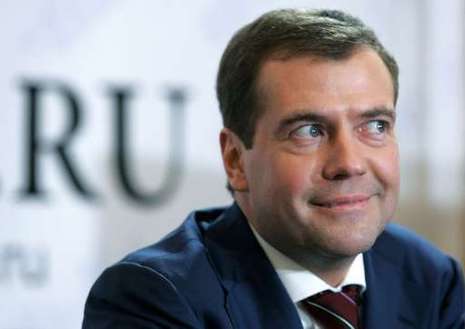Could it get to the point where Georgia would try to pull off another war this time knowing Russia isn't backed by high oil prices....or anything else besides Natural Gas?
------------------------------------------------------------------------
Russian industrial output falls 20%

Russia's industrial production plunged 20 per cent in January, a fall that could herald a much larger than expected drop in gross domestic product this year, economists fear.
The decline was its largest month to month drop since records began seven years ago.
"The horrendous industrial production data in January have left no doubt that the economy has come to a screeching halt," said Ivan Tchakarov, chief Russia economist for Nomura, the investment bank. "This indicates that the combined effect of the credit squeeze in the banking sector and falling global and domestic demand has filtered through to the real economy."
Russia's president Dmitry Medvedev underlined the Kremlin's concern with the worsening situation when he sacked four regional governors yesterday, the first time so many senior officials have been purged in years.
The governors fired had headed regions where a recent spike in unemployment had taken the worst toll. In December, Russia's economy shed roughly half a million jobs, bringing the total unemployment level to 7.7 per cent.
Sergei Markov, a member of the Kremlin's ruling United Russia party, said that the sackings may have also been connected to anti- corruption probes and could usher in further dismissals right up to cabinet level. "In this situation we need to make sure that government funds get to the real sector and are not stolen along the way."
Russia was hit hard by the combination of the global credit crunch and the falling price of oil last autumn. A one-third fall in the value of the rouble since the summer has crippled demand at home and caused an artificial shortage of credit. Russian officials are already describing their country as in recession.
Igor Yurgens, an adviser to Mr Medvedev, said the government was mapping out scenarios for growth to fall from 6.3 per cent in 2008 to anywhere between zero and minus 10 per cent this year depending on whether the oil price falls further, whether international credit markets reopen and on how sharply the global recession hits China.
The government is locked in debate over how to redraw the budget for 2009 as fear grows over the extent of the recession.
Economists linked the sharp fall in January output to the virtual paralysis of the financial system as the government sped up a rouble devaluation that created a lucrative one-way bet for anyone to change roubles for dollars, rather than lend them to the real economy.
Bankers say non-payments spiralled during the devaluation and rouble liquidity dried up. The banking system is still frozen with most second and third tier borrowers unable to find funds. However, the rouble appears to have stabilised, at least temporarily, and authorities are hoping the banks will begin lending again.
------------------------------------------------------------------------
Russian industrial output falls 20%

Russia's industrial production plunged 20 per cent in January, a fall that could herald a much larger than expected drop in gross domestic product this year, economists fear.
The decline was its largest month to month drop since records began seven years ago.
"The horrendous industrial production data in January have left no doubt that the economy has come to a screeching halt," said Ivan Tchakarov, chief Russia economist for Nomura, the investment bank. "This indicates that the combined effect of the credit squeeze in the banking sector and falling global and domestic demand has filtered through to the real economy."
Russia's president Dmitry Medvedev underlined the Kremlin's concern with the worsening situation when he sacked four regional governors yesterday, the first time so many senior officials have been purged in years.
The governors fired had headed regions where a recent spike in unemployment had taken the worst toll. In December, Russia's economy shed roughly half a million jobs, bringing the total unemployment level to 7.7 per cent.
Sergei Markov, a member of the Kremlin's ruling United Russia party, said that the sackings may have also been connected to anti- corruption probes and could usher in further dismissals right up to cabinet level. "In this situation we need to make sure that government funds get to the real sector and are not stolen along the way."
Russia was hit hard by the combination of the global credit crunch and the falling price of oil last autumn. A one-third fall in the value of the rouble since the summer has crippled demand at home and caused an artificial shortage of credit. Russian officials are already describing their country as in recession.
Igor Yurgens, an adviser to Mr Medvedev, said the government was mapping out scenarios for growth to fall from 6.3 per cent in 2008 to anywhere between zero and minus 10 per cent this year depending on whether the oil price falls further, whether international credit markets reopen and on how sharply the global recession hits China.
The government is locked in debate over how to redraw the budget for 2009 as fear grows over the extent of the recession.
Economists linked the sharp fall in January output to the virtual paralysis of the financial system as the government sped up a rouble devaluation that created a lucrative one-way bet for anyone to change roubles for dollars, rather than lend them to the real economy.
Bankers say non-payments spiralled during the devaluation and rouble liquidity dried up. The banking system is still frozen with most second and third tier borrowers unable to find funds. However, the rouble appears to have stabilised, at least temporarily, and authorities are hoping the banks will begin lending again.














Comment